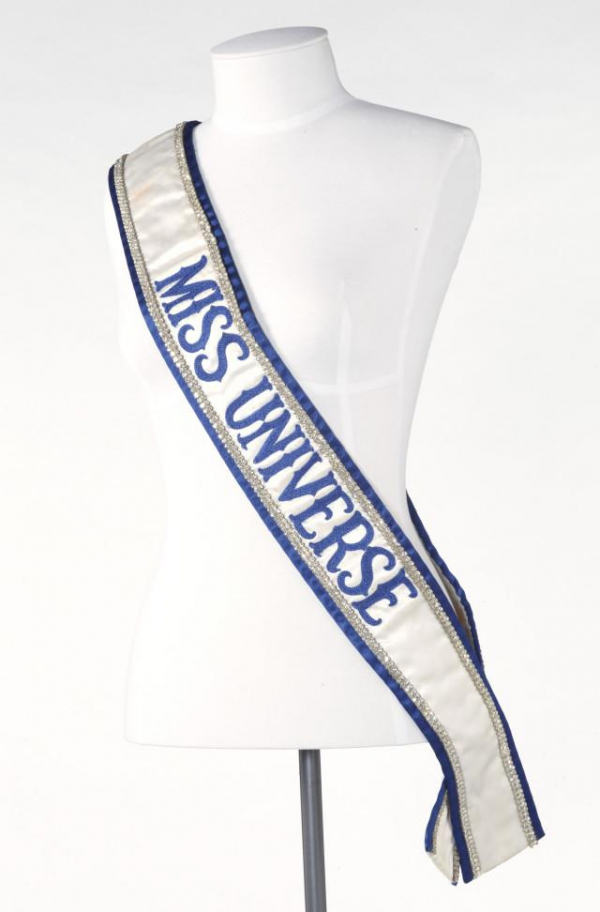And the Winner Is...
 It's now viral. Even if you had no interest in watching women get judged based upon how they look in swimwear (athletically speaking, of course), you know that on Sunday Steve Harvey announced Miss Colombia (the country, not Columbia the university, Steve) the winner of the Miss Universe Pageant and then minutes later, apologized and named Miss Philippines the winner. Was this the right thing to do? Donald Trump doesn't think so; he wants both contestants to be named Miss Universe.
It's now viral. Even if you had no interest in watching women get judged based upon how they look in swimwear (athletically speaking, of course), you know that on Sunday Steve Harvey announced Miss Colombia (the country, not Columbia the university, Steve) the winner of the Miss Universe Pageant and then minutes later, apologized and named Miss Philippines the winner. Was this the right thing to do? Donald Trump doesn't think so; he wants both contestants to be named Miss Universe.
Let's not forget that underneath it all the Miss Universe Pageant is a contest – with judges, judging criteria and rules. Like all contests, the rules control as a legal matter, but as a practical matter keeping positive public opinion is important.
To help avoid the fiasco experienced by the Miss Universe Pageant, contest rules should clearly state, at a minimum: (i) contestants are bound by the decisions of the judges; (ii) judges' decisions are final; (iii) a potential winner is not a winner until validated; (iv) no more than the stated number of prizes will be awarded; and (v) no responsibility is assumed for printing, typographical, technical or other errors associated with the winner announcement. I have searched online for the full contest rules, but have only been able to find this: http://www.missuniverse.com/info/faq. Assuming the full rules have similar language, naming Miss Philippines the winner would be the correct (legal) thing to do. But Mr. Trump may be on to something – this decision just doesn't feel right, especially after seeing the shocked face of Miss Colombia when being literally stripped of her crown.
These are the decisions that keep marketers and promotion lawyers up at night (not just to watch an anachronistic beauty pageant). As a rule of thumb, it's always a good idea to try to do the right thing. For example, in 2007, Toys R Us offered a $25,000 prize to the first born "American" baby of the new year. Baby Yuki Lin was born at the stroke of midnight at the NYU Downtown Hospital. But Yuki Lin's mother was an illegal immigrant and therefore was not eligible to participate because the contest rules stated that it was only open to mothers who were legal US residents. Toys R Us then initially awarded the prize to the runner-up baby born only 19 seconds after little Yuki Lin to a US citizen mother (after having to use a tie-breaker to distinguish between another baby born exactly the same time). Outrage ensued. How can Toys R Us punish a helpless baby – who herself was a US citizen having been born in NYC. Chinese organizations and politicians chastised Toys R Us; New Yorkers refused to shop at Toys R Us stores in protest. To fix the situation, Toys R Us decided to award a $25,000 prize to all three babies – Yuki Lin and the two born 19 seconds later. This decision was heralded as a public relations success.
The ultimate decision when a mix-up occurs must take into account not only the rules, but also the rights of the winner and the prize involved. In Yuki Lin's case, giving an additional two $25,000 prizes didn't affect the baby who officially won. It may have cost Toys R Us initially more than expected, but the positive consumer reaction may have more than made up the difference. In the Miss Universe situation, the prizes are more than just money and include the title of "Miss Universe", which could conceivably be lessened if shared. So while some might think it's not a good idea to follow Donald Trump's advice, he may have a point worth considering here. (However, if, as some have suggested, the Miss Universe Pageant intentionally set up this "mistake" to draw attention to a past-its-prime pageant, pox on them.)










